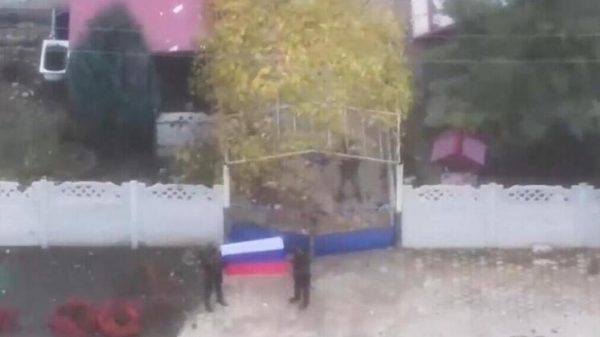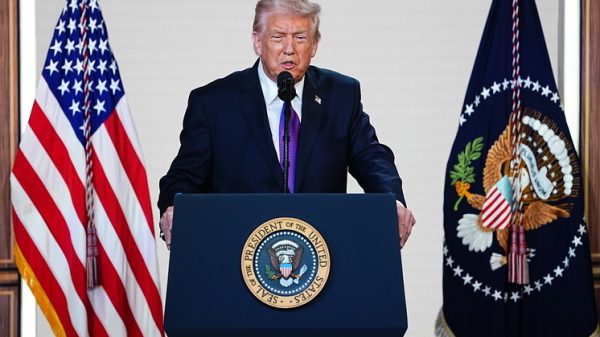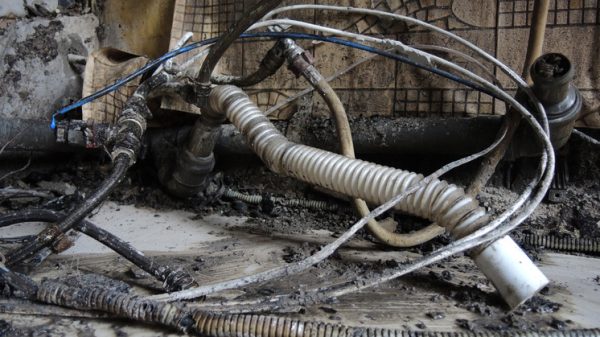 Rishi Sunak called on the Lords to “get involved and do the right thing”. Photo: Chris J. Ratcliffe/Bloomberg
Rishi Sunak called on the Lords to “get involved and do the right thing”. Photo: Chris J. Ratcliffe/Bloomberg
Peers, led by a former Labor attorney general, have hatched a plan that threatens to delay the signing of Rishi Sunak's flagship treaty on Rwanda.
For the first time, peers used their powers to introduce a motion in the House of Lords aimed at stopping ratification of the treaty until the government could prove that Rwanda was safe for asylum seekers.
They developed a 10-point plan for new laws and judicial measures that they say ministers and Rwanda must put into effect. before the contract is approved.
Lord Goldsmith, Sir Tony Blair's attorney general during the Iraq War, introduced the motion, which will be debated in the House of Lords next Monday as chairman of the International Treaties Committee, which plays a crucial role in vetting and ratifying new British treaties.
The move comes after Mr Sunak on Thursday warned the House of Lords not to overturn the “will of the people” on immigration, urging peers to “do the right thing” and back his bill.
>
The bill was introduced into the House of Lords on Thursday amid cries of «shame» from peers after Mr Sunak thwarted a rebellion by more than 60 Tory MPs seeking to tighten it by ensuring it passed the Commons. In two weeks the bill will pass its second reading.
Legislation aims to launch deportation flights to Rwanda by the spring, but on Thursday Mr Sunak failed to guarantee they would begin before the general election, which, are expected to begin. will take place in the second half of this year.
Speaking at a Downing Street press conference, he said: “It’s time for the Lords to pass this bill. This is an urgent national priority. The treaty with Rwanda has been signed, and the law that deems Rwanda a safe country has been passed unchanged in our elected chamber.
“Now there is only one question. Will the opposition in the appointed House of Lords attempt to thwart the will of the people as expressed by the elected House? Or will they agree and do the right thing?
The legally binding treaty is at the heart of Mr Sunak's bill and aims to correct flaws in the deportation scheme that led to the Supreme Court declaring Rwanda's policy illegal and Rwanda unsafe for asylum seekers.
But Lord Goldsmith, attorney general between 2001 and 2007, said his cross-party committee had asked colleagues to confirm its findings that measures to ensure Rwanda could be declared a safe country were «incomplete » and must be «fully implemented» before ratification can proceed.
He told the Telegraph: «It should not be ratified — it should be delayed.»
Lord Goldsmith said he «concerned» that the bill precludes any judicial review of the policy, «especially after the Supreme Court looked at this very carefully and, based on the evidence before them, concluded that they cannot say that Rwanda is safe, and cannot approve.”
Peers will discuss a proposal to delay the treaty on Monday, giving the prime minister his first public glimpse of the scale of opposition he will face as he tries to get his bill through the House of Lords.

The proposal may be agreed to with or without a vote, but it will not be binding on the government. If ministers decide to ignore it, they will have to make a statement to the Lords to explain why.
If the Lords support the proposal and ministers accept it, the treaty could be delayed for several months, jeopardizing the plans . to start flying.
But if ministers decide to ignore it and move on, they could later face a showdown in the courts, with legal experts warning asylum seekers will cite the decision as evidence Parliament does not consider Rwanda a safe country.
The motion, which must be ratified within two weeks, states that “Her Majesty’s Government should not ratify the UK-Rwanda Asylum Partnership Agreement until the protections it provides are in place.” will be fully implemented.»
This is the first time such a proposal has been raised against the treaty since the laws were overhauled in 2010 to give parliament greater control over such international agreements.
The 10-point plan includes a new asylum law in Rwanda. , which is expected to be adopted in two months, as well as a system to ensure that migrants cannot be returned to their countries to face persecution, the appointment and training of international judges, and the creation of monitoring committees and appeal bodies.
Lord Carlisle, a member of the panel and a former independent government expert on counter-terrorism, described the bill as “exceptionally malicious” and said peers had a responsibility to rewrite it and, if necessary, “kill it”. He said the bill represented “a step towards totalitarianism.”
“Across countries we have seen the damage that is caused when governments use deliberate and often ill-considered political imperatives to place themselves above the courts — this is a step towards totalitarianism and a position that the United Kingdom generally condemns,” he said.


























































Свежие комментарии